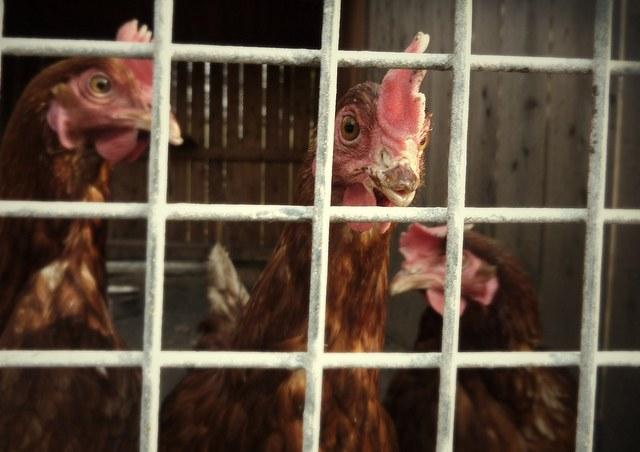
Poultry company Perdue Foods became the target of animal welfare organizations after an undercover investigation by Mercy For Animals (MFA) revealed illegal animal abuse at two of the company’s contract farms. Almost 182,000 people signed a petition urging Perdue to adopt better animal welfare standards.
After negotiations with MFA and other groups, Perdue announced new animal welfare policies this week. And animal welfare organizations are praising the company’s new policies. MFA described it as the “most comprehensive animal welfare policy ever adopted by a major chicken producer.” Perdue is one of only four companies that control most of the chicken industry.
Perdue’s new policies will reduce the suffering of almost 680 million birds on 2,200 farms, according to MFA. The new animal welfare plan is called Commitments to Animal Care 2016 and Beyond, and it is based on the Five Freedoms of Animal Welfare:
- Freedom from hunger and thirst
- Freedom from discomfort
- Freedom from pain, injury or disease
- Freedom to express normal behavior
- Freedom from fear and distress
- Evaluating and implementing production systems that go beyond the needs of the company’s chickens, to include the wants of its chickens.
- Re-committing to its efforts to transform the relationship with the farmers who raise its chickens.
- Being transparent about its programs, goals, and progress.
- Continuing to build an Animal Care Culture within the company.
“As we continue to learn about innovative and better ways to raise animals through our 'No Antibiotics Ever' journey and our experience in raising organic chickens, we are adopting a four-part plan which will result in changing how we raise chickens,” said Chairman Jim Perdue, in a statement. “Our vision is to be the most trusted name in food and agricultural products and animal care is a big part of that journey.”As part of the new animal welfare plan, Perdue will “study and implement new space criteria for chickens based on bird activity and health.” To date, only 12 percent of its chicken housing includes outdoor access and natural light. By the end of this year, Perdue will install windows in 200 existing poultry houses, and use them to compare the health and activity of the chickens with others in enclosed housing. If the windows are found to be effective in increasing bird activity, the company will create annual targets to add windows to existing houses. All new houses will contain windows. Perdue also hopes to double the rate of chicken activity in the next three years.
Perdue will start to better monitor its employees and communicate better with the farmers who raise its chickens. It will start video monitoring its transport vehicles and catching crews, and spot-check the video recordings weekly. It will add more pay incentives for farmers and other people who handle the live chickens to “further promote appropriate handling of live chickens.”
Consumers are driving new animal welfare policies
Consumers are one of the drivers for Perdue's new animal welfare policies. As Perdue stated: “Consumers increasingly consider the origin of their food, the scale of Perdue’s commitments to animal care will further conversations around responsible food production from the farmer to the consumer, and bring progressive raising practices into the mainstream.”Perdue is not the only company to announce new animal welfare policies. Over the past couple of years, a number of companies announced commitments to cage-free eggs and phasing-out sow gestation crates. The reason why is simple: More and more consumers want to buy humanely-raised products. A 2013 survey found that 34 percent of consumers will pay 10 to 20 percent more for humanely-raised and certified products, and 74 percent said they are willing to pay more for humanely-raised meat, dairy and eggs. Almost all (95 percent) said that the most important label to them is humanely-raised.
Image credit: Flickr/Krystian Olszanski

Gina-Marie is a freelance writer and journalist armed with a degree in journalism, and a passion for social justice, including the environment and sustainability. She writes for various websites, and has made the 75+ Environmentalists to Follow list by Mashable.com.














